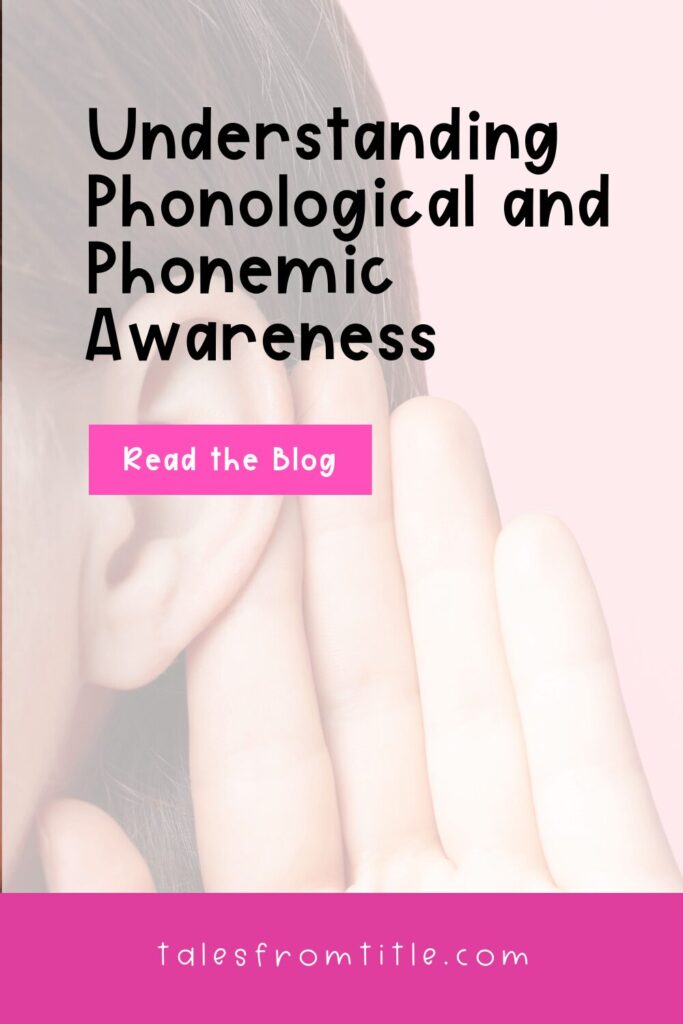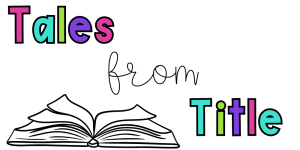If you’ve taught primary grades (kindergarten, first, and second), you know how challenging it can be to teach reading, especially to kids who struggle to grasp and apply reading skills and concepts. I believe the more we understand what we’re teaching, the more confident and skilled we become as educators which is why I am putting together this series of blog posts.
This ten-part series is designed to help classroom teachers learn about the key components of reading and their importance. I remember not fully knowing about the five components of reading or why each one matters until I pursued my reading specialist certification. Through this series, I’ll break down each component, followed by a post explaining why each is critical to students’ success in reading.
For a deeper dive into each reading component, I recommend Reading Rockets’ self-paced learning modules. These modules provide a thorough look at each reading component and offer assessments that can earn you a certificate, which your district might accept for professional development hours.
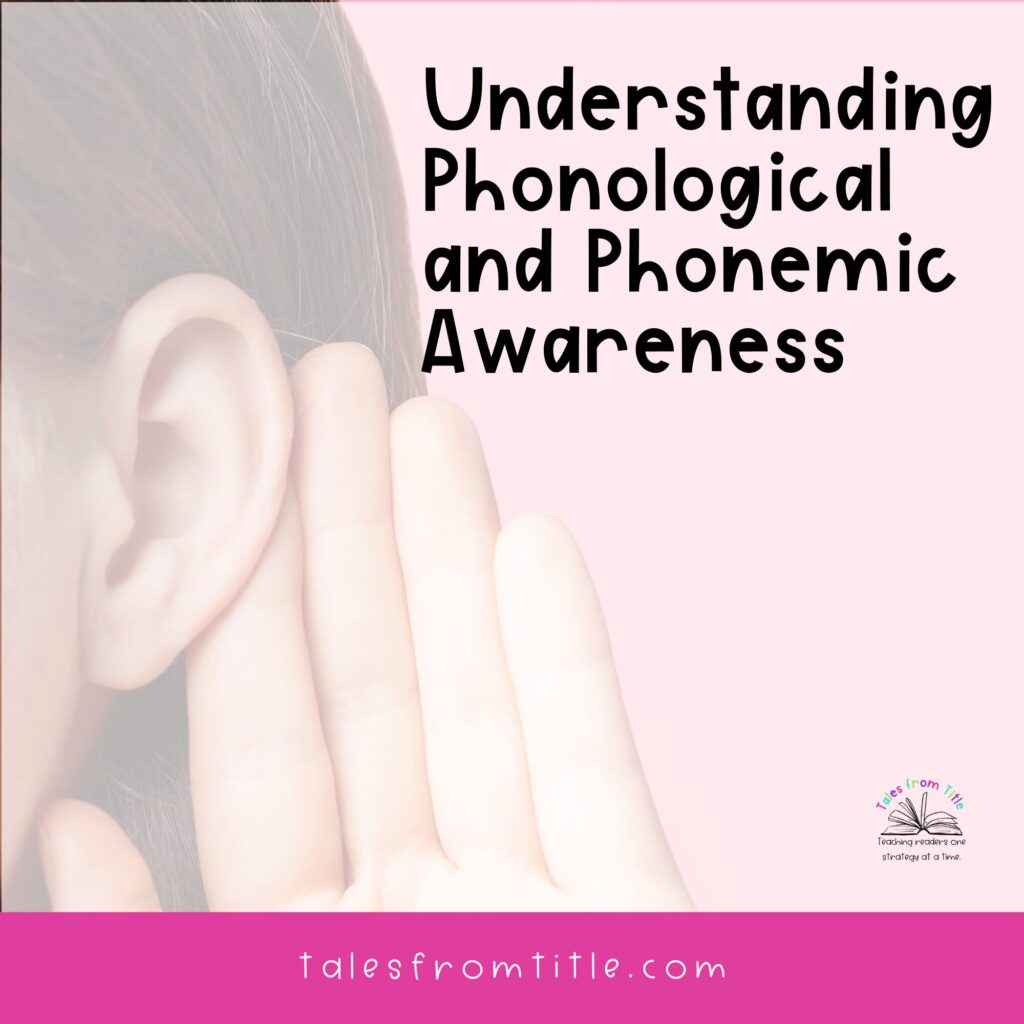
Understanding Phonological and Phonemic Awareness
Reading can be thought of as a process, and the first component of reading is phonemic awareness, which requires no reading at all — it’s all about oral language. Including a skill that doesn’t involve reading as a “reading component” may seem strange, but phonemic awareness is crucial for young learners to become successful readers.
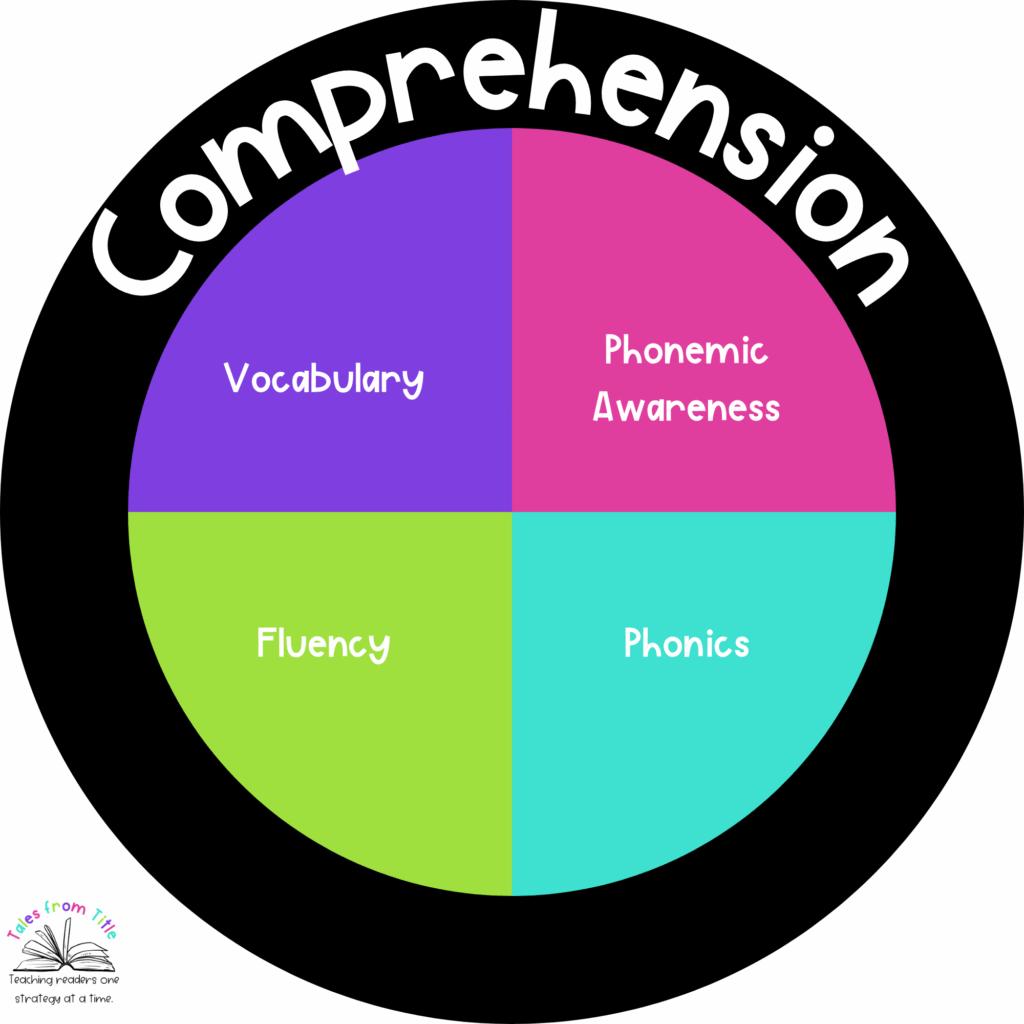
Since humans aren’t naturally equipped to connect the sounds we hear to letters, children need to develop phoneme awareness to decode words. In simple terms, they need to match the sounds in spoken words to their individual printed letters before they can read fluently. This is where phonological and phonemic awareness, the final skill in phonological awareness, come in.
What is Phonological Awareness?
Phonological awareness is a broad set of skills that allows us to recognize and manipulate parts of spoken sentences and words. Phonemic awareness—the focus on individual sounds or phonemes—is the most advanced phonological awareness skill and one of the five key components of reading.
Phonological Awareness Skills, From Simple to Complex:
- Word Awareness: Recognizing and counting words in a sentence.
- Syllable Awareness: Counting, segmenting, and blending syllables; identifying first, middle, and last syllables; and manipulating syllables by adding, deleting, or substituting them.
- Onset-Rime Awareness: Blending the onset (initial sound) and rime (the string of sounds that follow), recognizing rhymes, and generating rhyming words.
- Phonemic Awareness: Isolating and focusing on individual sounds (phonemes) within spoken words. This includes the ability to blend sounds into words, segment words into sounds, and manipulate sounds within words.
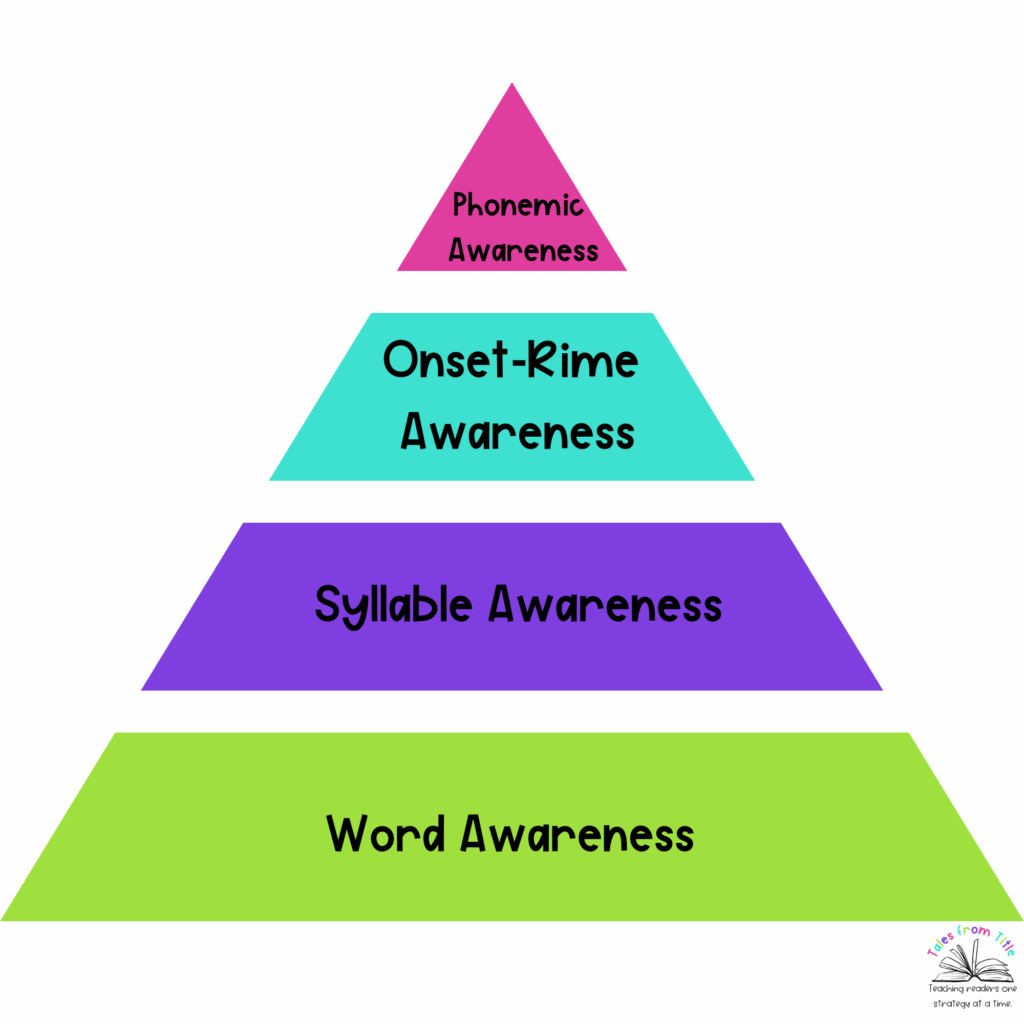
What is Phonemic Awareness?
Phonemic awareness, the most complex phonological skill, is our ability to notice, think about, and work with individual sounds in spoken words.
Key Phonemic Awareness Skills:
- Saying Sounds in Isolation: Recognizing sounds independently.
- Identifying Sounds in Words:
- First sounds – the first sound in cat is /k/.
- Medial sounds – the middle sound in cat is /a/.
- Final sounds – the final sound in cat is /t/).
- Blending Sounds: Combining individual sounds to form words – /k/ /a/ /t/ becomes cat.
- Segmenting Sounds: Breaking words down into individual sounds -dog becomes /d/ /o/ /g/.
- Manipulating Sounds:
- Adding Sounds: Add /m/ to the beginning of -an, creating man.
- Deleting Sounds: Say bag, remove /b/, and you have ag.
- Substituting Sounds: Replace the first sound in fan with /t/ to create tan.
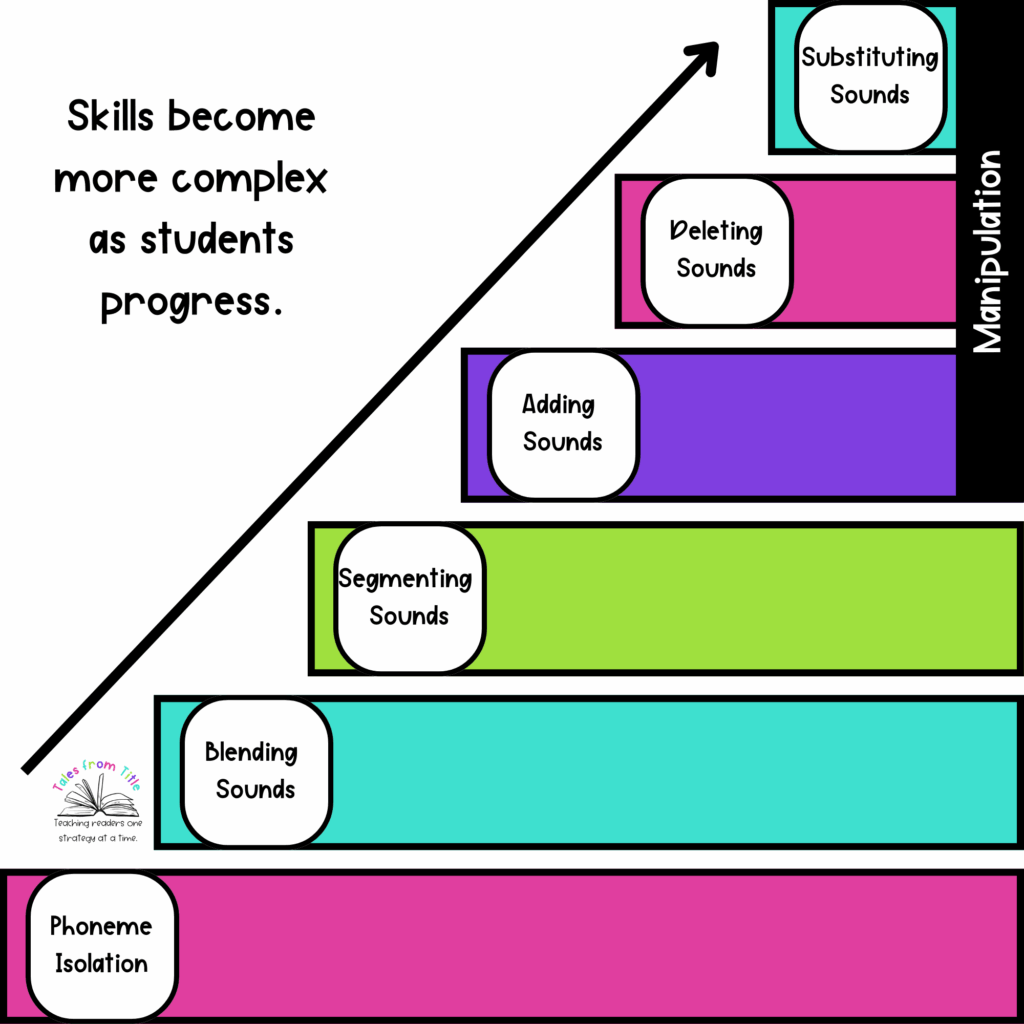
Conclusion
Phonological awareness is a hierarchy of skills, with phonemic awareness being the most complex. Phonemic awareness focuses specifically on phonemes, the smallest sound units in spoken language. It’s important to remember that English has 26 letters of the alphabet but 44 phonemes, including long vowels, schwa sounds, digraphs, and diphthongs.
This post serves as an introduction to these foundational skills, but it’s not meant to replace formal training. For a comprehensive look at phonological and phonemic awareness, check out Reading Rockets’ Reading 101 modules.
In the next post, we’ll explore why phonemic awareness is such an essential skill for students as they learn to read.
